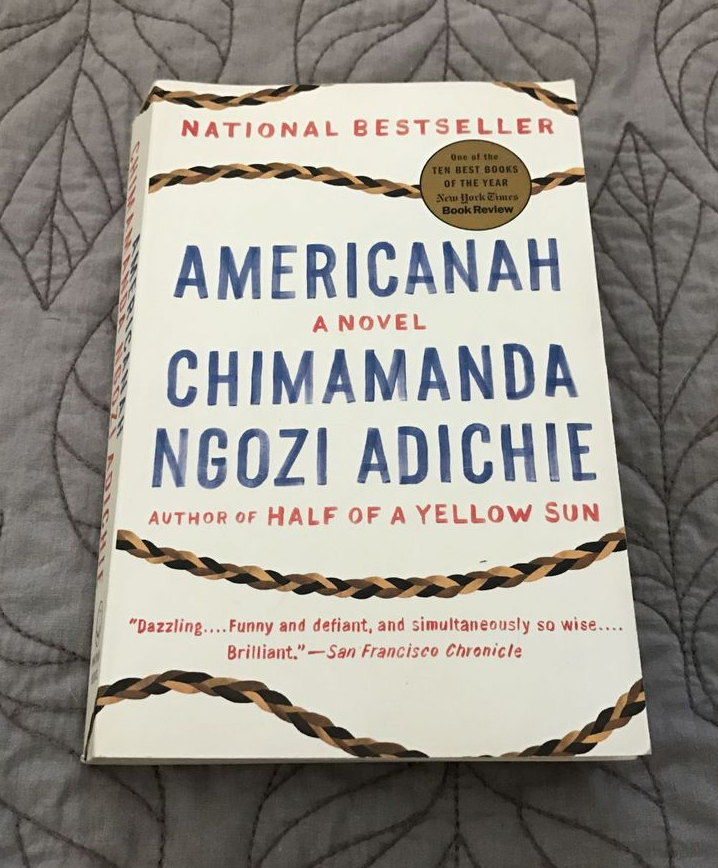Reading Outside the (Color) Line
One of the (many) things that has changed in my life since participating in the Waking Up to Whiteness program (which I posted about here) is that I’ve started to notice how much of what I read is written by white people, about white people. Which is understandable — since I’m white. But so limiting!
Now I’m really making a conscious effort to break out of that pattern. To which end: I just started reading Americanah, by Chimamanda Ngozi Adichie.
I picked it because the New York Times recently listed it as one of “15 remarkable books by women that are shaping the way we read and write fiction in the 21st century.”
(Asymmetry, by Lisa Halliday, which I just finished reading and posted about here, was also listed. Click here for the compete Times listing.)
In the past, I probably wouldn’t have even noticed this novel. Which would have been a shame, because it’s TERRIFIC!!!
Here’s a sample from the first few pages:
“The man standing closest to her was eating an ice cream cone; she had always found it a little irresponsible, the eating of ice cream cones by grown-up American men, especially the eating of ice cream cones by grown-up American men in public. He turned to her and said, ‘About time,’ when the train finally creaked in, with the familiarity strangers adopt with each other after sharing in the disappointment of a public service. She smiled at him. The graying hair on the back of his head was swept forward, a comical arrangement to disguise his bald spot. He had to be an academic, but not in the humanities or he would be more self-conscious. A firm science like chemistry, maybe. Before, she would have said, ‘I know,’ that peculiar American expression that professed agreement rather than knowledge, and then she would have started a conversation with him, to see if he would say something she could use in her blog.
“People were flattered to be asked about themselves and if she said nothing after they spoke, it made them say more. They were conditioned to fill silences. If they asked what she did, she would say vaguely, ‘I write a life-style blog,’ because saying, ‘I write an anonymous blog called Raceteenth or Various Observations About American Blacks (Those Formerly Known as Negroes) by a Non-American Black’ would make them uncomfortable.
“She had said it, though, a few times. Once to a dreadlocked white man who sat next to her on the train, his hair like old twine ropes that ended in a blond fuzz, his tattered shirt worn with enough piety to convince her that he was a social warrior and might make a good guest blogger. ‘Race is totally overhyped these days, black people need to get over themselves, it’s all about class now, the haves and the have-nots,’ he told her evenly, and she used it as the opening sentence of a post titled ‘Not All Dreadlocked White American Guys Are Down.'”


[…] Monday, I posted about making a conscious effort to expand my reading habits to include more books written by and/or primarily about people of color. Then on Tuesday I had […]